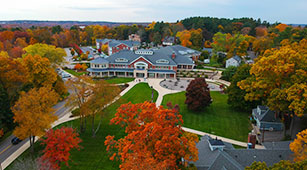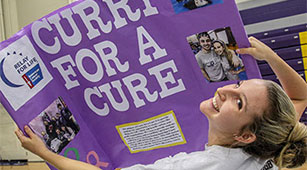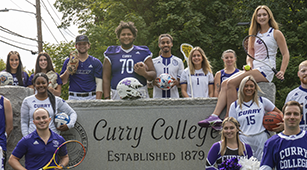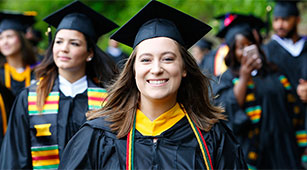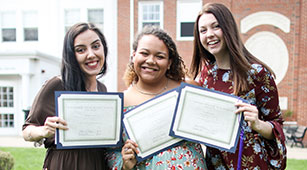Schedule an appointment to meet with the Center for Global and Career Services about your area of interest.
Make an AppointmentDisability Services FAQ
Contact Office of Disability Services
- 617-333-2385 (P) 617-333-2990 (F)
- disabilityservices@curry.edu
- Learning Commons, S-104
Who qualifies to receive accommodations and services from Disability Services?
Disability Services provides academic accommodations and auxiliary aids for students with many types of disabilities including, but not limited to: learning disorders; attention deficit/hyperactivity disorder; psychiatric disorders; traumatic brain injury; deafness and hard of hearing; blindness and low vision; mobility impairments; medical conditions; autism spectrum disorders; and temporary disabilities. Disability Services also coordinates accommodations due to dietary conditions, assistance animals, transportation, and other housing needs.
I received accommodations in high school. Will these accommodations translate to college?
Not necessarily. Please refer to this link, Students with Disabilities Preparing for Postsecondary Education, which outlines the differences between high school/college in terms of legality, responsibility, and process. You may also reach out to ODS with any questions and/or to initiate the accommodation request process.
Do I need to request accommodations every semester/year?
You will need to request accommodations every new academic year. Generally , you will not need to submit new documentation but will be asked to provide any relevant updates.
For housing, transportation, ESA’s or meal plan accommodations, you need to request your accommodation every year. We may request current documentation or meeting if needed. If you receive an accommodation, it does not guarantee you will be approved for the same accommodation the following year.
Are accommodations retroactive?
No. Accommodations begin only when you have provided your instructors with a current accommodation verification letter from ODS. Instructors must also have reasonable time to arrange for the accommodations requested.
What services are available for qualified students?
Academic accommodations and auxiliary aids are provided on a case by case basis. They may include, but are not limited to: additional time to complete quizzes and exams; distraction reduced exam environment; use of computer for essay exams; use of hand written responses rather than computerized answer sheet; note taker support; permission to tape record lectures; textbooks in alternative format; and assistive technologies. Additional services may include housing, assistance animals, transportation, or dining service accommodations.
Does Curry College have a support program specifically for students with learning differences?
Curry College has the Program for Advancement of Learning (PAL), a support program specifically for students with learning differences. This program is designed for students who have diagnosed learning differences and/or attention deficit/hyperactivity disorder, and have at least average to superior intellectual ability. Students must apply for this program separately from their application to Curry, and must submit diagnostic materials with their application. To learn more about this program, please visit the PAL website. If a student decides not to apply to PAL or is not accepted into the program, s/he is strongly encouraged to register with Disability Services to receive academic accommodations and auxiliary aids.
Are there any additional fees for accommodations, modifications, and services?
Academic accommodations and auxiliary aids are usually provided at no additional cost for qualified students. However, please be aware that an accommodation that would create an undue hardship on Curry College may not be provided.
How recent must documentation be to receive academic accommodations and auxiliary aids?
It depends on the type of disability or impairment. Please review our documentation guidelines to learn more. In addition, Curry College has an Educational Diagnostic Center which conducts psycho educational assessments with adolescents and adults. To receive information on being evaluated, please contact the Educational Diagnostic Center at 617-333-2250.
Is tutoring available for students registered with Disability Services?
All students have access to peer and professional tutoring in some courses. In addition, there is a Writing Center at Curry. To learn more about tutoring, please visit Academic Success.


